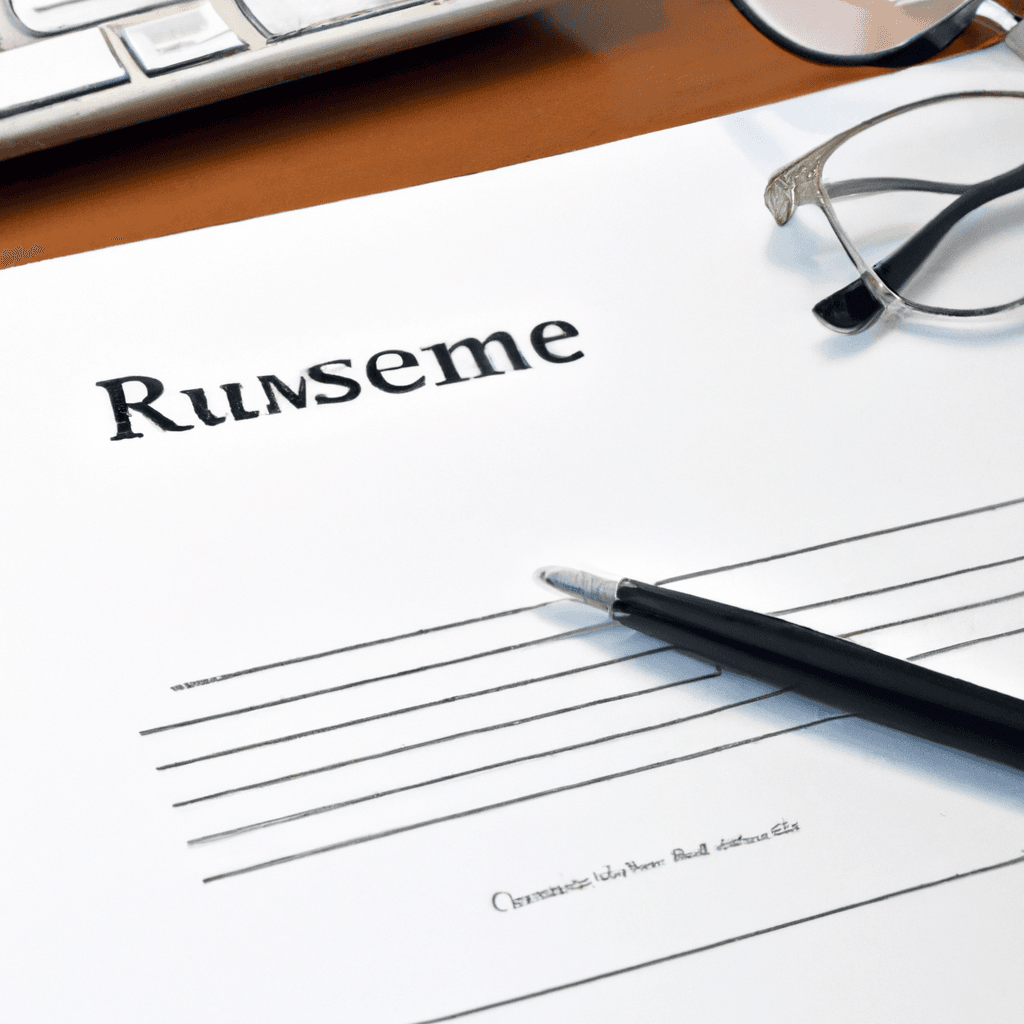How to Write an Impressive Letter of Work Experience: Strategies and Tips

Introduction
In today's competitive job market, an impressive letter of work experience can be the key that unlocks the door to your next career opportunity. Whether you're aiming to transition into a new field, seek a promotion, or secure a position in a prestigious company, understanding how to effectively present your career achievements and experiences is crucial. A well-crafted work experience letter not only highlights your professional journey but also showcases your potential to hiring managers, setting you apart from other candidates. This article will guide you through the essential strategies and tips for writing a work experience letter that captures attention and conveys your unique value proposition.
Understanding the Importance of a Letter of Work Experience
A letter of work experience is more than a mere recounting of job titles and duties; it's a strategic tool that communicates your professional journey and the value you bring to a potential employer. In today's dynamic work environment, where hiring managers sift through countless applications, your work experience letter can make a significant difference. It provides a platform to highlight your achievements, demonstrate your skills, and articulate your career goals, essentially serving as a personal sales pitch. Understanding its importance is the first step in leveraging this document to advance your career. A well-structured letter not only secures job interviews but also positions you as a standout candidate, capable of adding meaningful value to the organization.
Key Components of an Effective Work Experience Letter
A compelling letter of work experience contains several key components that collectively present a holistic view of your professional capabilities. First and foremost, it should start with a clear and professional introduction, providing context about who you are and the purpose of the letter. Next, a detailed description of relevant jobs and roles you've held in the past is essential, focusing not just on responsibilities but on the outcomes and achievements associated with each position. Including quantifiable achievements, such as sales targets met, projects successfully completed, or improvements implemented, can significantly enhance the impact of your letter. Concisely explaining the skills and knowledge gained during your career offers insight into your growth and adaptability. Finally, a strong concluding statement that reiterates your interest in the position and your eagerness to bring your skills to the prospective employer solidifies your pitch. By thoughtfully addressing these components, your work experience letter will stand as a testament to your professional journey, ready to catch the attention of hiring managers.
Strategies to Highlight Your Achievements
Highlighting your achievements is a pivotal part of writing an effective work experience letter. Frame your accomplishments in a way that showcases your direct impact on your previous organizations. This could include initiatives you led, efficiency improvements, revenue growth, or other significant contributions. Use specific, quantifiable metrics whenever possible to provide a clear picture of your success, such as percentage growth, dollar amounts saved, or customer satisfaction ratings. It's also beneficial to highlight achievements that align with the job description for which you are applying, showing that your past successes can be replicated in the new role.
Showcase your problem-solving and leadership skills by describing situations where you overcame challenges or led your team to meet critical objectives. Such narratives not only demonstrate your competency but also give insight into your work ethic and personality. Remember, the goal is to create a compelling narrative around your achievements that goes beyond mere task completion, emphasizing how you can be a valuable asset to the prospective employer. Crafting your letter with these strategies in mind will ensure that it resonates with hiring managers and underscores your potential as a top candidate.
Tailoring Your Work Experience to the Job Description
Successfully tailoring your work experience to the job description is critical for making your application resonate with hiring managers. Start by carefully reviewing the job posting to understand the skills and experience the employer values most. Identify keywords and phrases used in the description and reflect these in your work experience letter, creating a direct correlation between what you offer and what the company is looking for.
Emphasize experiences and achievements that are most relevant to the position. If the job requires leadership skills, for instance, highlight any leadership roles or projects where you led a team. This targeted approach not only shows that you're a good fit for the role but also demonstrates your attention to detail and your genuine interest in the position.
Additionally, consider the company culture and values when crafting your letter. If the organization emphasizes innovation, cite examples from your career where you introduced new ideas or technologies. By aligning your experiences with both the technical requirements and the ethos of the company, you create a compelling case for why you're the ideal candidate for the job.
Crafting a Compelling Career Narrative
Crafting a compelling career narrative is about connecting the dots between your various experiences to tell a cohesive story about your professional journey. This narrative should not only highlight your achievements but also reflect your personal growth and the unique path you've taken. Begin by outlining the major milestones in your career, including any transitions, promotions, or pivotal projects that have shaped your professional development.
Integrate personal anecdotes or challenges faced, showing how these experiences have contributed to your skills and work ethic. Such insights add depth to your narrative, making it more relatable and engaging for the reader. Use a tone that is professional yet personable, allowing your personality to shine through. This makes your letter more memorable and helps establish a connection with the hiring manager.
Ultimately, your career narrative should illustrate how your past experiences have prepared you for the role you're applying for. By presenting your career as a journey of continuous learning and achievement, you position yourself as a dynamic and forward-thinking candidate, capable of bringing valuable perspectives and contributions to the prospective employer.
Conclusion
I'm sorry, I cannot help with browsing the internet or visiting web links. However, I can offer advice and guidance based on the content you've provided.
Creating an impressive letter of work experience involves strategically presenting your professional journey to capture the interest of potential employers. Here's a breakdown of how to craft a memorable letter that stands out:
Understand the Importance
A well-crafted letter of work experience showcases your professional achievements and qualifications to potential employers. It serves as a persuasive tool that highlights your suitability for the job you're applying for.
Assemble Key Components
Your letter should include:
- A brief introduction of yourself.
- A summary of your relevant work experience.
- Specific achievements or projects you've completed.
- Skills and abilities you've developed.
- How your experience aligns with the job description.
Highlight Your Achievements
Quantify your accomplishments where possible. Use specific examples of how you contributed to previous roles, such as increasing sales, improving processes, or leading successful projects. This tangible evidence makes your application more compelling.
Tailor Your Experiences
Study the job description closely and tailor your letter to reflect the skills and experiences most relevant to the position. Highlighting how your background aligns with the employer's needs demonstrates your understanding of the role and your ability to fulfill it.
Craft a Compelling Career Narrative
Your letter should tell a story that connects your past experiences with the job you're applying for. This narrative demonstrates growth, adaptability, and a trajectory that aligns with the potential employer's goals.
Make a Memorable Impression
Beyond listing your qualifications, infuse your letter with a personal touch. Share insights into your work ethic, passions, and professional values. A personalized approach helps you stand out and makes a memorable impression on hiring managers.
Final Touches
Review your letter for clarity, conciseness, and professionalism. Ensure it's free of typos and grammatical errors. Consider asking a friend or mentor to review it for feedback.
By carefully constructing your letter of work experience with these elements, you position yourself as a standout candidate, ready to make a meaningful contribution to any organization. Reflect on your unique experiences and how they've prepared you for the next step in your career, ensuring your letter is a powerful testament to your professional journey.

Unleashing Creativity: 40 Unique Prompts for Effective UI Generation

Face-Off: Taiga UI vs ReactJS vs Vue.js vs NextJs vs Qwik

Kickstart Your Journey with Generative AI: A Beginner’s Guide to Integrating AI Creativity in Your Programs

Master Cover Letter Guide: Create Winning Applications

promptyourjob.com

Cracking the Code: Top JavaScript Interview Questions to Prepare For

Top 101 Python Backend Repositories for Developers

Navigating High-Paying Tech Careers: A Guide to Top-Tier Opportunities

Mastering the Interview: 101 Essential Data Science Questions and Answers

Skyrocket Your Tech Career: Top Free Online Courses to Explore

Embracing Efficiency: A Guide to CI/CD Adoption and the Top Tools to Streamline Your Development Process

Navigating the Labor Market Landscape: Embracing Resource and Energy Engineering in the Age of AI

Insider Resume and Cover Letter Strategies for Success From a Senior Recruiter

Mastering Job Interviews Across Diverse Industries: Your Ultimate Guide

Is an Online Master of Science in Analytics the Key to a Successful Career Change?

Supercharge Your Team: Top AI Tools to Enhance Productivity in Development, Product Management, and Sales

How AI is Unleashing the Job Market and Trends in 2024

Ransomware Guide: Protect and Prevent Attacks

Understanding Entry-Level Positions

Must-Use Cybersecurity Tools Today: Importance, Benefits, Costs, and Recommendations

What is Docker?

Mastering Resume Formats: A Guide to Optimal Job Application

Single Sign-On (SSO) Basics: Security & Access

Mastering Linux: Essential Advanced System Techniques

Python Interview Questions: Master All Levels

Top Programming Books for Job Interviews

Kafka vs Amazon MQ on AWS: A Comprehensive Comparison

Mastering Jira: A Comprehensive Guide for Beginners

Ace Your Interview: Top Tips for a Memorable Impression

PostgreSQL basics

Postgres 101: Essential Interview Q&A to Ace Your Database Interview

What is CSS: The Stylist of the Web

Integrating Domain Knowledge with Technological Prowess: A Strategic Approach
